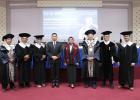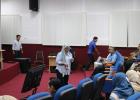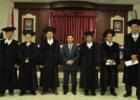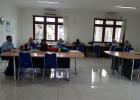You are here
Developing a Start-Up Entrepreneurship Learning Model to Foster Entrepreneurial Attitudes and Improve Interpersonal Communication Skills among Teacher Education Students
Primary tabs
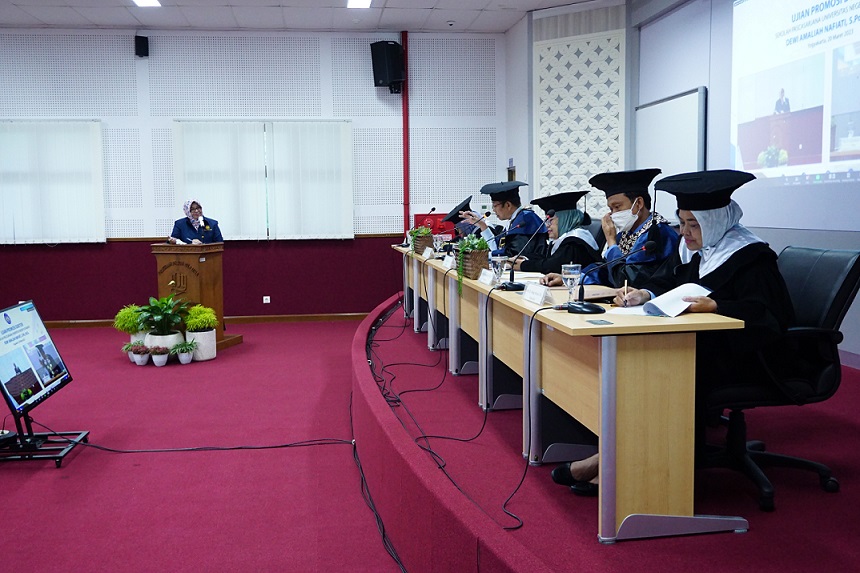
24/03/2023 - Dewi amaliah Nafiati, a doctoral student of the Doctoral Program in Educational Sciences, Graduate School of Universitas Negeri Yogyakarta (UNY), successfully defended her dissertation titled “The Development of a Start-Up Entrepreneurship Learning Model to Foster Entrepreneurial Attitudes and Improve Interpersonal Communication Skills among Teacher Education Students.” She graduated with a GPA of 4.0 and was awarded the Summa Cum Laude distinction.
The research aimed to develop a start-up entrepreneurship learning model designed to cultivate entrepreneurial attitudes and improve interpersonal communication skills among teacher education students. The study also sought to test the feasibility, analyze the practicality, and examine the effectiveness of the developed model.
According to Dewi, this research is particularly relevant in the context of Industrial Revolution 4.0, where fostering entrepreneurial attitudes among future educators is a strategic necessity. Using the Borg & Gall research and development method, she conducted her study with teacher education students from three private universities under the LLDIKTI Region VI (formerly Pekalongan Residency). Data were collected through questionnaires, interviews, observations, and documentation.
The limited trial employed a one-group pretest-posttest design, analyzed using t-tests, while the expanded trial used a pretest-posttest control group design, analyzed with Z-tests. The developed start-up entrepreneurship learning model was based on the R&D framework of Borg & Gall, integrating the 5E Start-Up principles into the instructional process. The learning model was supported by teaching instruments, including lesson plans (RPS), visual media (images/videos), and assessment tools.
The model underwent validation by content experts, design experts, and media experts, and was rated highly feasible. Practicality tests indicated that the model’s instructional syntax was rated good, its social system was rated excellent, the reaction principles were rated good, and the support system was rated excellent.
“The effectiveness tests showed that the start-up entrepreneurship learning model effectively fostered entrepreneurial attitudes and improved interpersonal communication skills among teacher education students,” concluded Dewi, a lecturer at Panca Sakti University Tegal, who completed her doctoral studies in three years and deven months.
(ant)
.
KONTAK KAMI
GRADUATE SCHOOL UNIVERSITAS NEGERI YOGYAKARTA
Kampus Karangmalang, Yogyakarta 55281
Telp. +62274-550836 (front office)
Fax. +62274-520326
Email: pps@uny.ac.id, humas_pps@uny.ac.id
Website : http://sps.uny.ac.id
FB: pascasarjana UNY
IG: spsuny_official, s3ip_uny
Twitter: OfficialUNY
Copyright © 2026,



